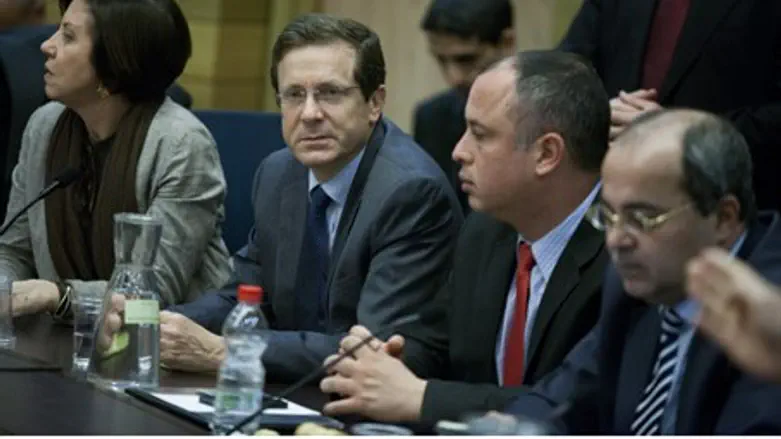
The Governance Bill significantly raises the voting threshold, risking several small parties’ ability to enter the Knesset., according to an expert.
Or Tuttnauer, a researcher at the Israel Democracy Institute and author of the book Ezer Knegda ("A Helpmate Against Her") on the role of the Opposition in the Israeli government, spoke to Arutz Sheva on Tuesday about the Opposition's outrage over the possibility of raising the Knesset threshold.
According to Tuttnauer, the law itself has solid legal principles - but its presentation needs to be re-examined. The key, according to the researcher, is to implement the law in a series of steps - to provide the political system to prepare itself for the change, whether that means combining Opposition parties or taking other steps to preserve the Opposition's role in the Knesset.
Tuttnauer also said that the law is being rushed too quickly through the Knesset.
While some believe that passing the law quickly gives the Opposition more time to prepare themselves politically for the next election, Tuttnauer noted that the rush does not give the government time to gauge the public's reaction to the change, and that the rush is unwarranted due to the time between now and the next elections process.
As things stand, according to Tuttnauer, the public must choose between a number of options in voting for the next elections - whether to switch support to majority parties, show support for struggling minority parties, or even boycott the voting process - with relatively little warning.
The researcher predicted that the law itself will probably pass through the Knesset - and with the public's blessing. He stressed that while he personally believes that the law should be implemented gradually, it is unlikely to cause more political upheaval than it has already.
On Monday, the Opposition parties sat out the controversial debates beginning over the three total laws being discussed in the Knesset this week - the Governance Bill, the Referendum Law, and the Equal Burden of Service Law - saying that a compromise offered to add an additional day of deliberation was "too little, too late."